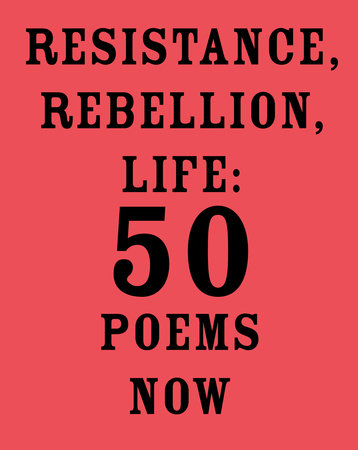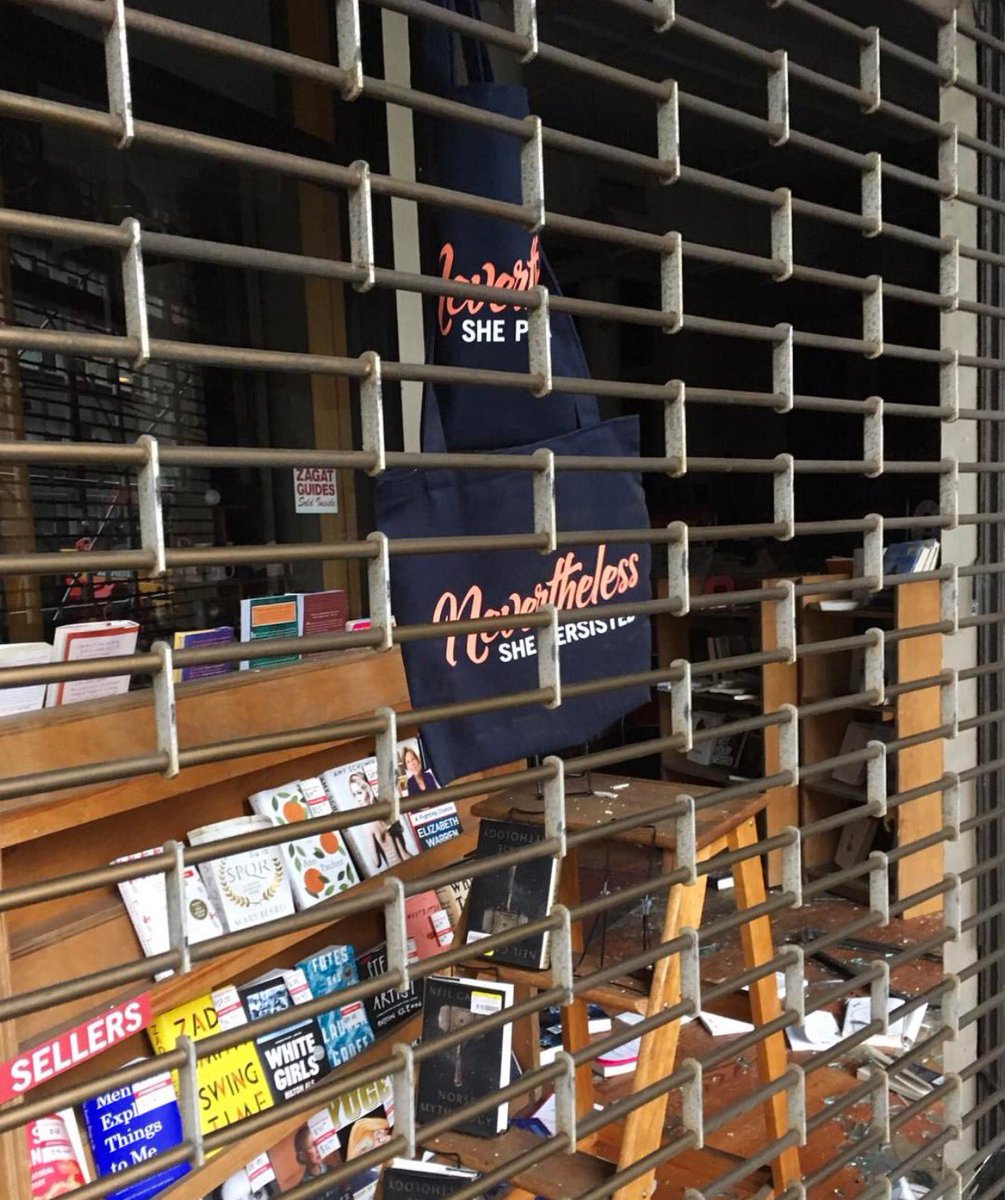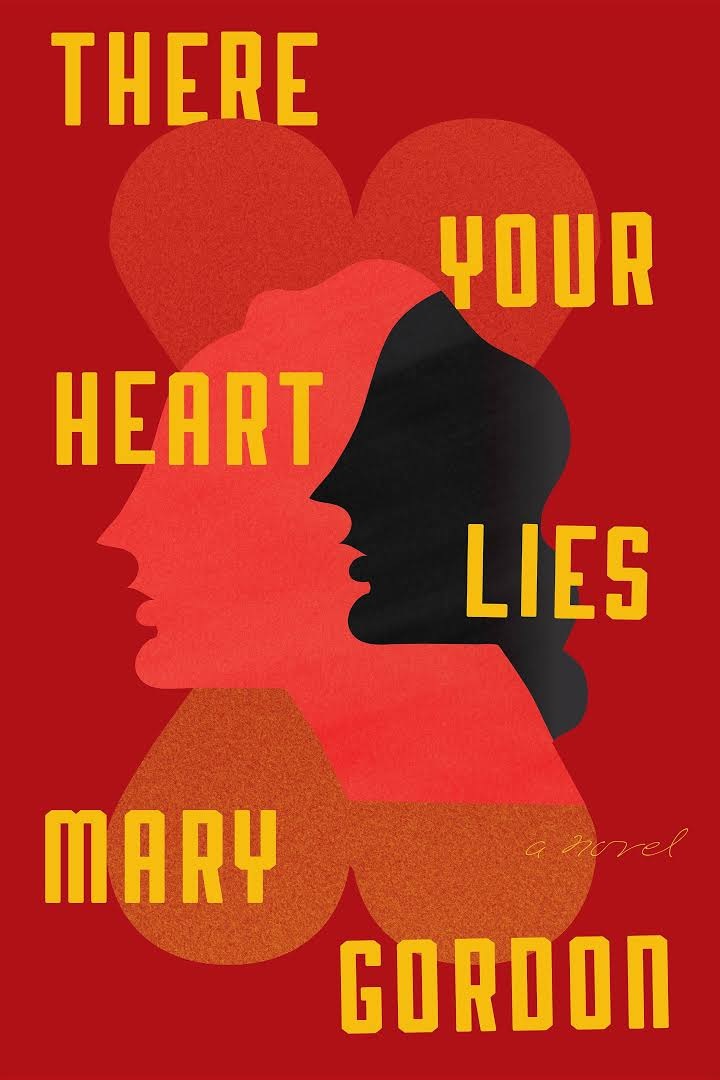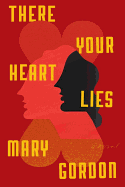 "We as editors and publishers know people are yearning. People are reading 1984, Hannah Arendt--there's interesting stuff going on with publishers' backlists because they speak to our moment," said Deborah Garrison, poetry editor at Knopf. Together with poet Amit Majmudar, Garrison has assembled Resistance, Rebellion, Life: 50 Poems Now, a collection of poems written recently about our current political moment. Included in the collection are poems of nearly every style, format and length, from poets internationally renowned, just debuted, and everywhere in between.
"We as editors and publishers know people are yearning. People are reading 1984, Hannah Arendt--there's interesting stuff going on with publishers' backlists because they speak to our moment," said Deborah Garrison, poetry editor at Knopf. Together with poet Amit Majmudar, Garrison has assembled Resistance, Rebellion, Life: 50 Poems Now, a collection of poems written recently about our current political moment. Included in the collection are poems of nearly every style, format and length, from poets internationally renowned, just debuted, and everywhere in between.
"But poets are responding right now," continued Garrison. "They're all at their desks. They just can't help themselves in a climate where language itself seems so degraded."
 |
| Deb Garrison |
Due out May 23, Resistance, Rebellion, Life (paperback, $12.95) came together much faster than the average poetry anthology. The idea for the collection began when Garrison read a Nicholas Kristof column in the New York Times in which Kristof presented the winners of his Donald Trump Poetry Contest. He had called for poems written about Trump and received more than 2,000 submissions.
"I was searching for a more interesting and more powerful way of registering objections," recalled Kristof, who has run poetry contests about political issues a few times before. However, none of those past contests, including one about the Iraq War that he considered very successful, brought in nearly as many submissions as this did. "And so I thought, here's a chance to harness some creativity and provide a new prism to take a look at Trump."
Among the thousands of submissions that Kristof received were poems by two Knopf poets, both of which were among the winners. One was the work of Amit Majmudar, the poet laureate of Ohio, who published the collection Dothead with Knopf in 2016. Thinking that he might be the right person to edit and introduce the collection, Garrison reached out to him. Majmudar "loved the idea."
 |
| Amit Majmudar |
"There's always an artistic response to the things that go on," said Majmudar. He was intrigued by the idea of putting together a collection very quickly in order to take a "literary snapshot of this moment." In most cases, he explained, anthologies take longer to assemble, and usually don't have "this spontaneous, fresh, moment-to-moment feel."
Once they got the go-ahead from Knopf, Garrison and Majmudar ran with it, sending out e-mails to more than 200 poets within a few days. Given how quickly they wanted to publish the collection, Majmudar and Garrison asked the poets to submit poems within 10 days. The only condition was that the poems couldn't have been previously published in a book or anthology, though it was fine if they had been posted on a blog or published in a journal. Majmudar and Garrison also stressed that poems from any political viewpoint would be accepted and evaluated purely on aesthetic grounds (perhaps unsurprisingly, there was little in the way of right-wing poetry).
"Amit said as a poet himself, he was worried about only giving them 10 days," said Garrison. "But really the fact is they were already writing this stuff."
Garrison recalled being blown away by the number of people who e-mailed her back, with poems, within 15 minutes. Others wrote to the occasion, and soon she and Majmudar had hundreds of submissions on their hands. Both said they were thrilled with not only the range and diversity of the submissions but also the overall level of quality. Majmudar selected 49 poems from all those submissions, and he contributed the 50th poem.
"I ended up having to make some pretty difficult decisions about rounding out the anthology," Majmudar said. "There were great poems that were sent in that didn't make it."
Majmudar initially evaluated the poems only on aesthetic grounds, without much thought about what the table of contents might look like in terms of diversity, but was pleasantly surprised to find that by following his own "aesthetic inclinations," he had "put together a collection that reflects America's diversity remarkably well." Included in the collection are poets of different ages, genders and ethnicities, from different states and at different points in their careers. Some, like Juan Felipe Herrera and Sharon Olds, have been luminaries for decades; others, like Robin Coste Lewis or Richie Hoffman, published their debut collections in recent years.
For the collection's 50th and final poem, Song of Ourselves, Majmudar wrote a cento, a form of poetry that combines quotations from other works into a kind of literary collage. He took one line from each of the previous 49 poems in the collection and combined them into a "freestanding poem" with its "own argument and its own development" before adding a final line of his own. He was suddenly inspired to try writing a cento, and that he had actually come up with a back-up plan lest it prove too difficult, he said, but he's gotten enough feedback to feel that it's a worthy "tribute to all of the contributors." --Alex Mutter
 Bookworks, Albuquerque, N.Mex., has launched a used book program for its North Valley shop and will begin buying gently used books from customers, in exchange for store credit. The store is now carrying used books for sale, primarily inventory from a recently closed bookstore, the Bookstop.
Bookworks, Albuquerque, N.Mex., has launched a used book program for its North Valley shop and will begin buying gently used books from customers, in exchange for store credit. The store is now carrying used books for sale, primarily inventory from a recently closed bookstore, the Bookstop.




IPC.0204.S3.INDIEPRESSMONTHCONTEST.gif)









IPC.0211.T4.INDIEPRESSMONTH.gif)
 "We as editors and publishers know people are yearning. People are reading 1984, Hannah Arendt--there's interesting stuff going on with publishers' backlists because they speak to our moment," said Deborah Garrison, poetry editor at Knopf. Together with poet
"We as editors and publishers know people are yearning. People are reading 1984, Hannah Arendt--there's interesting stuff going on with publishers' backlists because they speak to our moment," said Deborah Garrison, poetry editor at Knopf. Together with poet 

 Early Friday morning, several
Early Friday morning, several  Congratulations to the
Congratulations to the  Geekerella: A Fangirl Fairy Tale
Geekerella: A Fangirl Fairy Tale A Mary Gordon novel often comes with an aura of gravitas as she explores the confines and subtleties of living life against a background of Catholicism and family legacy. Her early novels Final Payments and The Company of Women set the stage well for her long career. Her latest, There Your Heart Lies, is a novel of history across generations in which a woman seeks a meaningful life that reconciles her desire for universal justice with the need for personal compassion.
A Mary Gordon novel often comes with an aura of gravitas as she explores the confines and subtleties of living life against a background of Catholicism and family legacy. Her early novels Final Payments and The Company of Women set the stage well for her long career. Her latest, There Your Heart Lies, is a novel of history across generations in which a woman seeks a meaningful life that reconciles her desire for universal justice with the need for personal compassion.